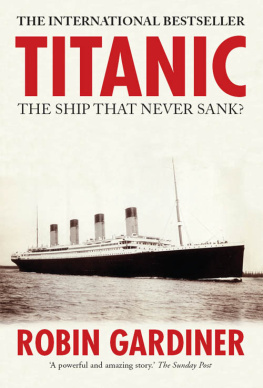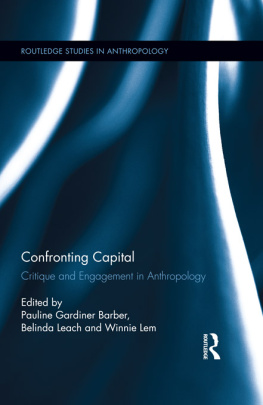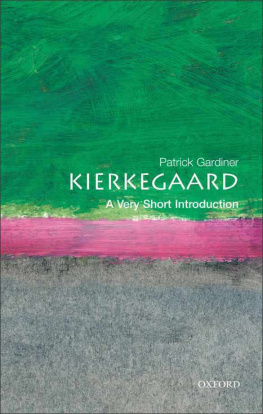CHAPTER I.
CAUSES OF THE THIRTY YEARS WAR.
Section I. Political Institutions of Germany.
IT WAS THE MISFORTUNE OF Germany in the sixteenth and seventeenth centuries that, with most of the conditions requisite for the formation of national unity, she had no really national institutions. There was an emperor, who looked something like an English king, and a Diet, or General Assembly, which looked something like an English Parliament, but the resemblance was far greater in appearance than in reality.
The Emperor was chosen by three ecclesiastical electors, the Archbishops of Mentz, Treves and Cologne, and four lay electors, the Elector Palatine, the Electors of Saxony and Brandenburg, and the King of Bohemia. In theory he was the successor of the Roman Emperors Julius and Constantine, the ruler of the world, or of so much of it at least as he could bring under his sway. More particularly, he was the successor of Charles the Great and Otto the Great, the lay head of Western Christendom. The Emperor Sigismund, on his death-bed, had directed that his body should lie in state for some days, that men might see that the lord of all the world was dead. We have chosen your grace, said the electors to Frederick III., as head, protector, and governor of all Christendom. Yet it would be hard to find a single fragment of reality corresponding to the magnificence of the claim.
As far, however, as the period now under review is concerned, though the name of Emperor was retained, it is unnecessary to trouble ourselves with the rights, real or imaginary, connected with the imperial dignity. Charles the Great, before the imperial crown was conferred on him, ruled as king, by national assent or by conquest, over a great part of Western Europe. When his dominions were divided amongst his successors, the rule of those successors in Germany or elsewhere had no necessary connexion with the imperial crown. Henry the Fowler, one of the greatest of the Kings of the Germans, was never an emperor at all, and though, after the reign of his son Otto the Great, the German kings claimed from the Pope the imperial crown as their right, they never failed also to receive a special German crown at Aachen (Aix-la-Chapelle) or at Frankfort as the symbol of their headship over German lands and German men.
When, therefore, the writers of the 16th or 17th centuries speak of the rights of the Emperor in Germany, they really mean to speak of the rights of the Emperor in his capacity of German king, just as, when they speak of the Empire, they mean what we call Germany, together with certain surrounding districts, such as Switzerland, the Netherlands, Lorraine, and Eastern Burgundy or Franche Comt, which are not now, if Alsace and the newly-conquered part of Lorraine be excepted, included under that name. In the same way the mere fragments of feudal supremacy, and the payment of feudal dues which the emperors claimed in Italy, belonged to them, not as emperors, but simply as Italian kings, and as wearers of the iron crown of Lombardy, which, as the legends told, was formed of nails taken from the Saviours cross.
Not that it would be wise, even if it were possible, to do otherwise than to follow the practice of contemporaries. The strange form, Emperor of Germany, by which, at a later period, men unfamiliar with Germany history strove to reconcile the old claims with something like the actual fact, had not been yet invented. And, after all, the confusions of history, the use of words and titles when their meaning is changed, are so many tokens to remind us of the unity of successive generations, and of the impossibility of any one of them building anew without regarding the foundations of their fathers. All that is needed is to remember that the emperor of later times is a personage whose rights and functions can be profitably compared with those of Henry VIII. of England or Lewis XIV. of France, not with Julius or Constantine whose successor he professed himself to be.
Take away the rights of the Emperor, said a law book of the fifteenth century, in language which would have startled an old Roman legislator, and who can say, This house is mine, this village belongs to me?" But the princes and bishops, the counts and cities, who were glad enough to plead on their own behalf that their lands were held directly from the head of the Empire, took care to allow him scarcely any real authority. This kingly dignity which passed under the name of the Empire was indeed very weak. It had never outgrown the needs of the Middle Ages, and was still essentially a feudal kingship. From circumstances which it would take too much space to notice here, it had failed in placing itself at the head of a national organization, and in becoming the guardian of the rights of the tillers of the soil and the burghers of the towns, who found no place in the ranks of the feudal chivalry.
The immediate vassals of the Empire, in fact, were almost independent sovereigns, like the Dukes of Normandy in the France of the tenth century, or the Dukes of Burgundy in the France of the fifteenth century. They quarrelled and made war with one another like the Kings of England and France. Their own vassals, their own peasants, their own towns could only reach the Emperor through them, if anybody thought it worth while to reach him at all.
The prospect of reviving the German kingship which was veiled under the august title of Emperor seemed far distant at the beginning of the fifteenth century. But whilst the Empire, in its old sense, with its claims to universal dominion, was a dream, this German kingship needed but wisdom in the occupant of the throne to seize the national feeling, which was certain sooner or later to call out for a national ruler, in order to clothe itself in all the authority which was needed for the maintenance of the unity and the safety of the German people. That, when the time came, the man to grasp the opportunity was not there, was the chief amongst the causes of that unhappy tragedy of disunion which culminated in the Thirty Years War.
In the middle of the fifteenth century an effort was made to introduce a system of regular assemblies, un der the name of a Diet, in order to stem the tide of anarchy. But it never entered into the mind of the wisest statesman living to summon any general representation of the people. In the old feudal assemblies no one had taken part who was not an immediate vassal of the Empire, and the Diet professed to be only a more regular organization of the old feudal assemblies.
From the Diet, therefore, all subjects of the territorial princes were rigorously excluded. Whatever their wishes or opinions might be, they had neither part nor lot in the counsels of the nation. There was nothing in the Diet answering to those representatives of English counties, men not great enough to assume the state of independent princes, nor small enough to be content simply to register without question the decrees of those in authority who with us did more than any other class to cement town and country, king and people together. Nor did even the less powerful of the immediate vassals take part in the meetings. Like the lesser barons of the early Plantagenet reigns, they slipped out of a position to which they seemed to have a right by the fact that they held their few square miles of land as directly from the Emperor as the Dukes of Bavaria or the Electors of Saxony held the goodly principalities over which they ruled.










